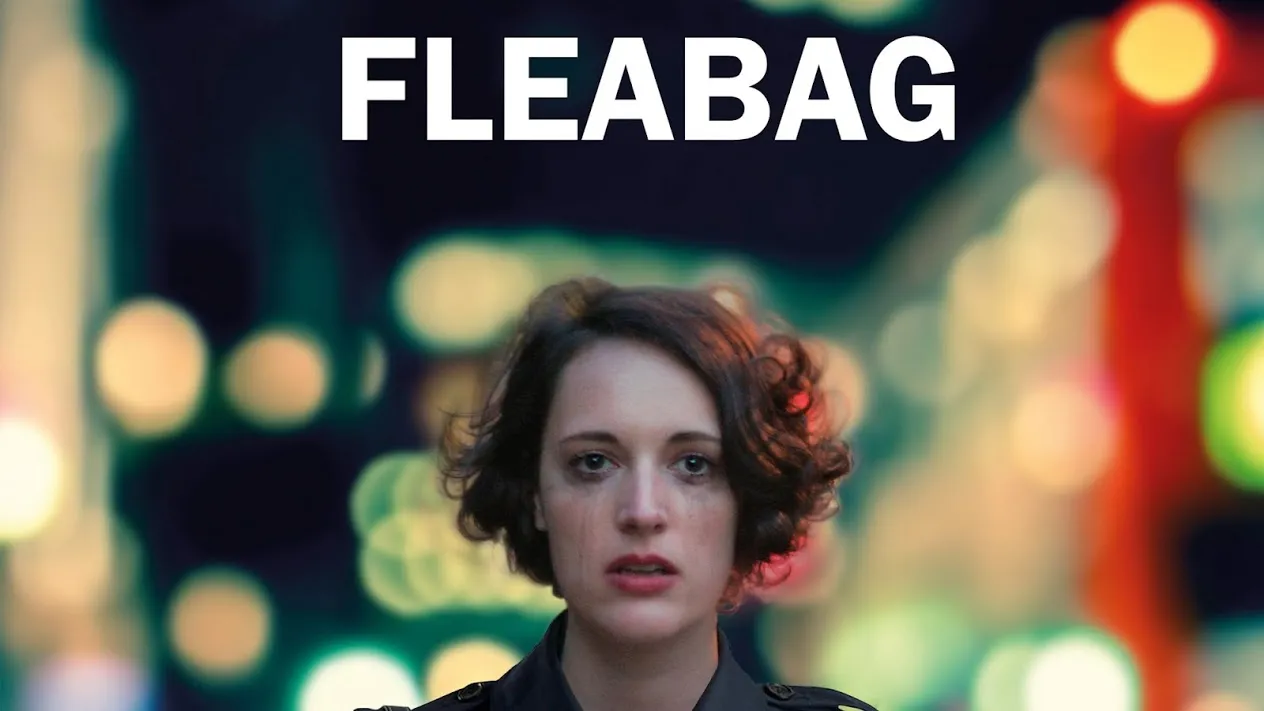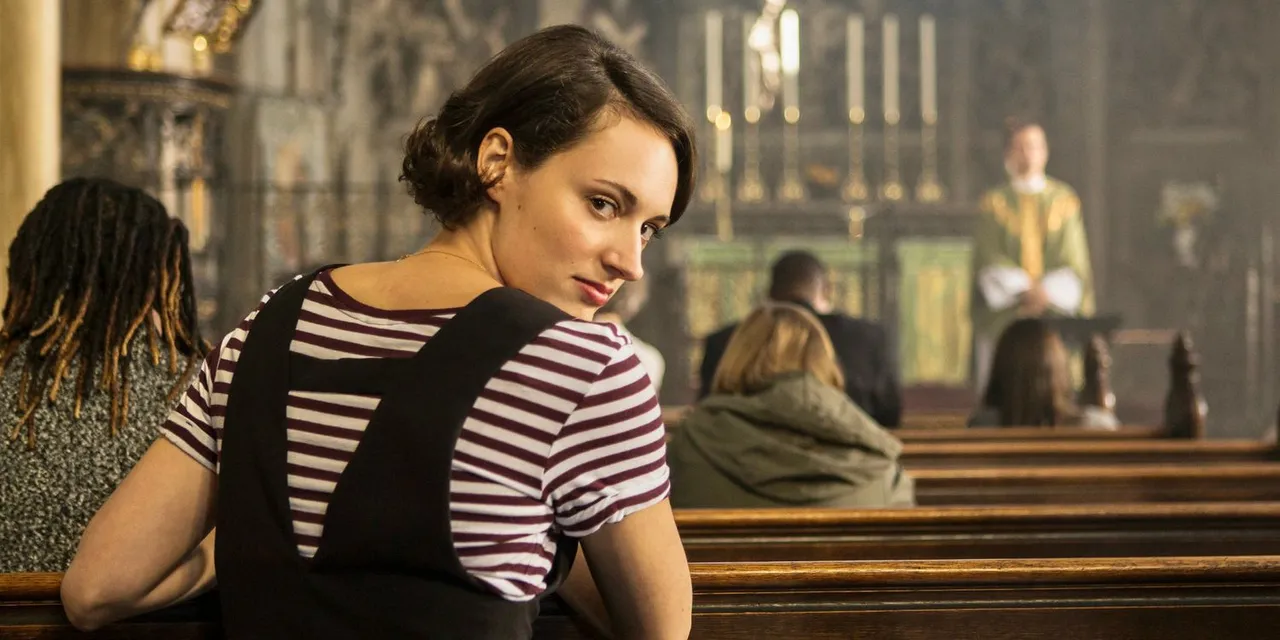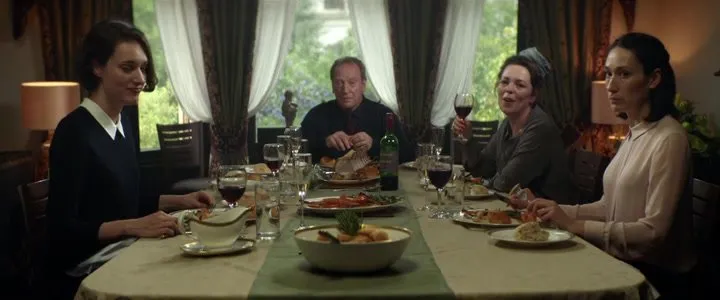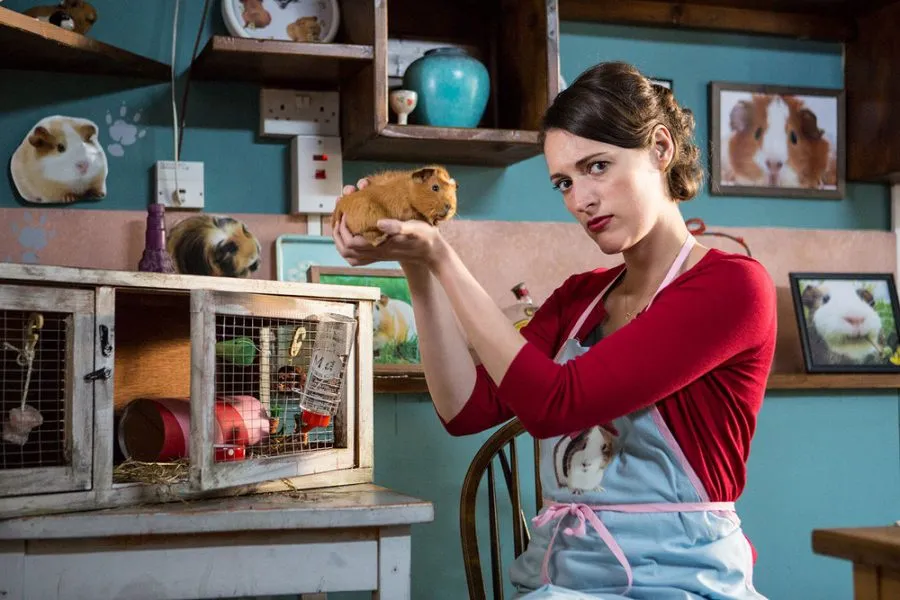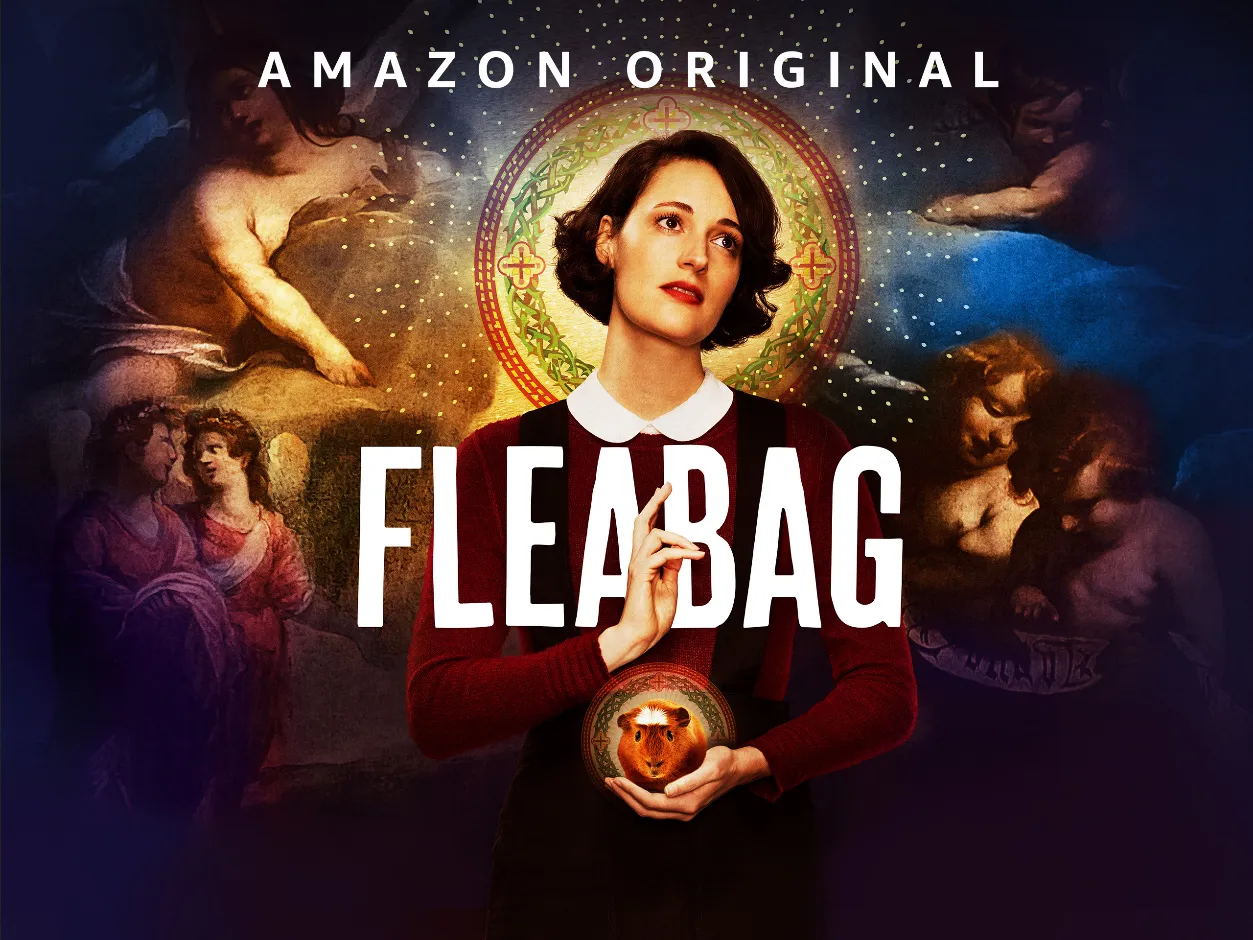You know how occasionally a movie character looks right at the camera, or says something that is clearly not directed at anyone else in the story, but what seems to be us the viewers? This doesn't happen very often, as it tends to rub many people the wrong way. We are not supposed to be in the story after all. On the contrary: many viewers are looking for getting lost in the film, and don't want to interact with the character from their sofa. Also, in many cases this bold move of the scriptwriter hardly adds anything to the story itself, so there is really no point in utilizing it. In a few rare cases, however, breaking the fourth wall is precisely what gives a show that certain edge, be it humorous, dramatic, or both. One excellent example for is the British TV series Fleabag.
A Serious Cultural Parody
Admittedly, I have never been to the UK, other than changing flights at a couple of airports. However, from the occasional interaction with culturally self critical Brits, and a plethora of media exaggerating the same tendencies, I have become somewhat familiar with how British people handle their emotions. Or should I say, how they are handled BY their emotions, as apparently they tend to have such a hard time gaining the upper hand over how they feel.
Whatever is deemed as uncomfortable, not only to oneself but potentially to others in general. It is often simply ignored, or at least excluded from being mentioned. This tends to work well for those who prefer bottling up all their sadness, frustration, anger, dissatisfaction, and rage, so that one day... they may forget about them all together? Therefor, should any of these things inadvertently come to the surface after all, it is bound to cause a bit of embarrassment, but nothing that a few uncompleted sentences followed by an awkward silence may not take care of. Oh I know... this whole backdrop is already cringeworthy enough. But then there is the whole sex thing...
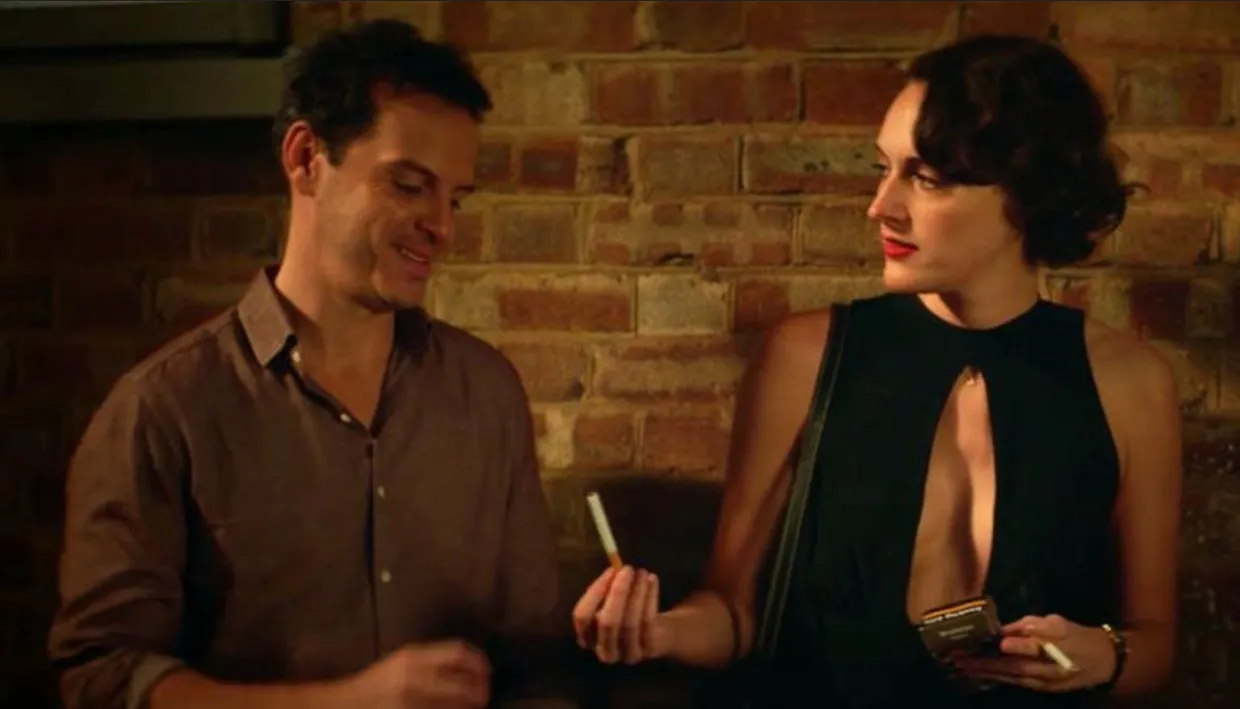
Constantly Looking for ... Something
The protagonist of Fleabag is a young woman in London who is ... well, sexually quite active. What first seems like a case of nymphomania is soon shown to be rooted in her strong desire to make real human connections, which she is unable to do though, causing her a great deal of emotional and social distress. This manifests itself in make-up-break-up relationships, one night stands with guys she can't relate to at all, and powerful infatuations with people who are clearly off limit. Additionally to carrying this weight, she needs to navigate the stormy straights of her family, with a godmother turned stepmother she clearly dislikes, her father who has an even harder time with his emotions than her, and her cold hearted sister she actually seems to be rather close to. True to her English culture, she goes through all this keeping her stiff upper lip, while dropping carefully protocolled verbal hints of subtle coded speech.
Are We Her Only Friends?
The only "people" she seems to be able to express herself freely, and often quite bluntly with, is the audience, who she keeps talking to throughout the show. Sometimes this consists of no more than a knowing glance that speaks volumes. Other times she goes on tirades explaining the nature of her own behavior without any excuses or self deceptions. So there is quite a bit of honesty, standing in stark contrast to all her real-world interactions. But even this has its limits, particularly when it comes to her actual, real friend, who has passed away recently in an unusual and unfortunate accident, in which the protagonist was somehow indirectly involved in. As we get to know her character, the nature of her relationship with others and herself become gradually understandable. As for her habit to addressing us, it even affects her surroundings at one point, as someone points out how she "disappears" for a moment.
Highly Witty Humor You Need to Find First
One reason I tend to enjoy British shows is the subtle nature of their jokes. It's so unlike American humor, which is out there in the open, completely obvious for everyone to see, and to top it of, the "Just kidding!" remark eliminates the last trace of a doubt that it was indeed a joke someone cracked. (Now, this is where you're supposed to laugh, please!) British humor, on the other hand, isn't even presented as such. If you don't get it, you won't get to laugh, simple as that. In most cases, however, it doesn't need a lot of pondering before it dawns on you: "They could not have possibly meant literally what they just said." I don't know about you, but at this point I have to laugh twice as much: about the joke itself, and about its brilliant subtlety. And in this regard, I really have to say Fleabag takes the cake. Since much of the dialogue is pretty fast paced, these hidden jokes become gems that you're so happy about finding that you miss a bunch of others. So skipping back or re-watching the whole series is certainly worth it.
A Mini Series Turned Into an Unfinished Show
The entire concept of Fleabag emerged in form of a stage play, first performed at the Edinburgh Fringe Festival in 2013. Its creator and writer Phoebe Waller-Bridge also played the role of the protagonist. It received such a great acclaim that it was turned into a screenplay for a six-episode miniseries in 2016, which then was renewed into a second season, will Waller-Bridge starring throughout the two seasons. It seemed like a magnificent project with huge potential, which could have continued for many more seasons. After all, the underlying (sexual) tension has so many facets in (particularly British) society. And judging from the number of awards and overall positive reception of the show, it could have pulled it off without a hitch. However, in the end only two seasons were made. If I managed to awaken your interest, why don't you check out the trailer:
To see more of my TV show reviews, please visit my Binge on This collection.

